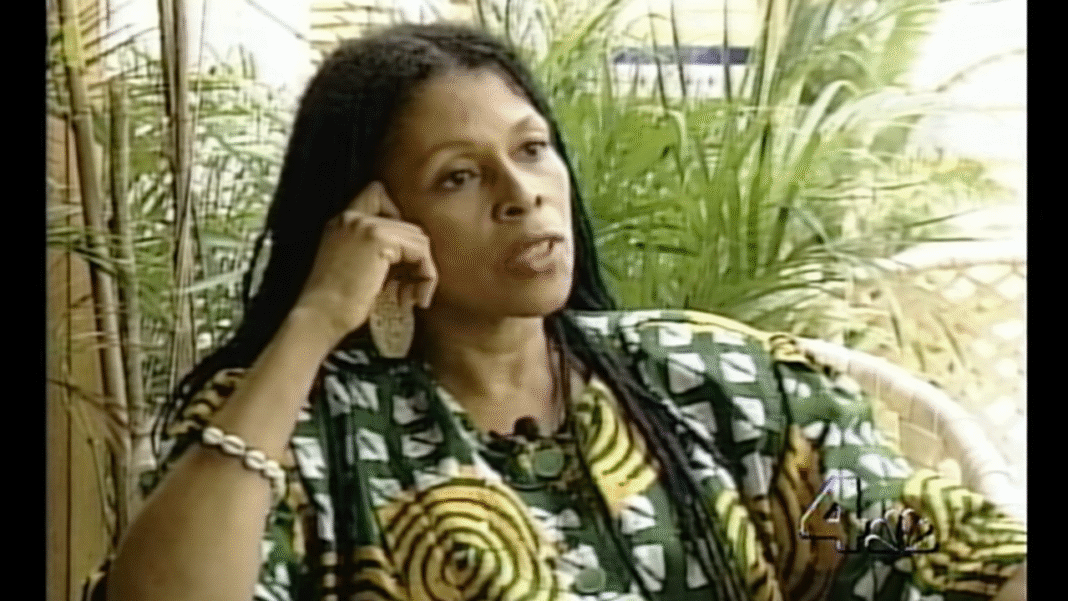Remembering Assata Shakur: A Revolutionary Life and Legacy
Political activist Assata Shakur, known for her fierce advocacy for Black liberation and social justice, has passed away at the age of 78. Born Joanne Deborah Byron on July 16, 1947, in Queens, New York, Shakur’s life journey spans significant political battles and far-reaching influences, particularly within the Black community.
On September 25, 2025, reports emerged confirming her death in Havana, Cuba. The Cuban Ministry of Foreign Affairs released a statement attributing her passing to health issues and advanced age. Her daughter, Kakuya Shakur, shared a heartfelt message on Facebook, expressing her deep sense of loss and gratitude for the support she received during this challenging time.
Growing up in Wilmington, North Carolina, Shakur experienced the turbulence of the 1960s firsthand. The civil rights and anti-war movements ignited her activism, shaping her into a formidable voice for change. After attending City College of New York, she aligned herself with fellow activist Louis Chesimard, marrying him briefly before pursuing her own path.
Shakur’s activism took a pivotal turn after she relocated to Oakland, California, where she joined the Black Panther Party. A fervent advocate for Black rights, she later broke away from the party and became a member of the Black Liberation Army (B.L.A.), a group that sought to address systemic injustice through militant means. This affiliation positioned her at the forefront of radical change in a country rife with racial inequality.
Her life was forever altered in 1973, following a tragic shootout on the New Jersey Turnpike that resulted in the deaths of a State Trooper, Werner Foerster, and a fellow B.L.A. member, Zayd Malik Shakur. Wounded during this incident, Shakur faced arrest and was subsequently convicted of Foerster’s death. The circumstances of her trial raised serious questions about fairness, as it was conducted before an all-white jury. In a 1998 NBC interview, she recounted her fears of assassination or kidnapping, articulating her motivations for seeking refuge in Cuba following her escape from Clinton Correctional Facility in 1979.
In Cuba, Shakur found political asylum under the government of Fidel Castro. Here, she lived a largely private life, although she occasionally engaged with the media, sharing insights on her struggles and the necessity of resistance against oppression. Despite living in exile, she remained a figure of resistance, symbolizing the fight against systemic racism and injustice in the United States.
In 2013, the FBI designated Shakur as the first woman on their Most Wanted Terrorists list, placing a $2 million bounty for her capture. This action only underscored her significance in the public consciousness; both a criminal in the eyes of law enforcement and a revolutionary icon for many activists.
Shakur’s insight into the imprisonment of Black bodies and the right to resist oppression resonated powerfully through her words. “People have the right to free themselves from oppression by whatever means they deem possible,” she famously stated.
Her memoir, Assata: An Autobiography, published in 1987, became a crucial text for understanding her life. It transformed her personal narrative into a blueprint for liberation, influencing countless activists, particularly within movements like Black Lives Matter. Her ability to articulate the lived experience of Black resistance reached far beyond her time, offering inspiration and solidarity to future generations.
Assata Shakur’s passing marks the end of a significant chapter in the struggle for racial justice, yet her legacy lives on. She is survived by her daughter, Kakuya Shakur, and extended family, carrying forward her vision of liberation and resilience against oppression.



